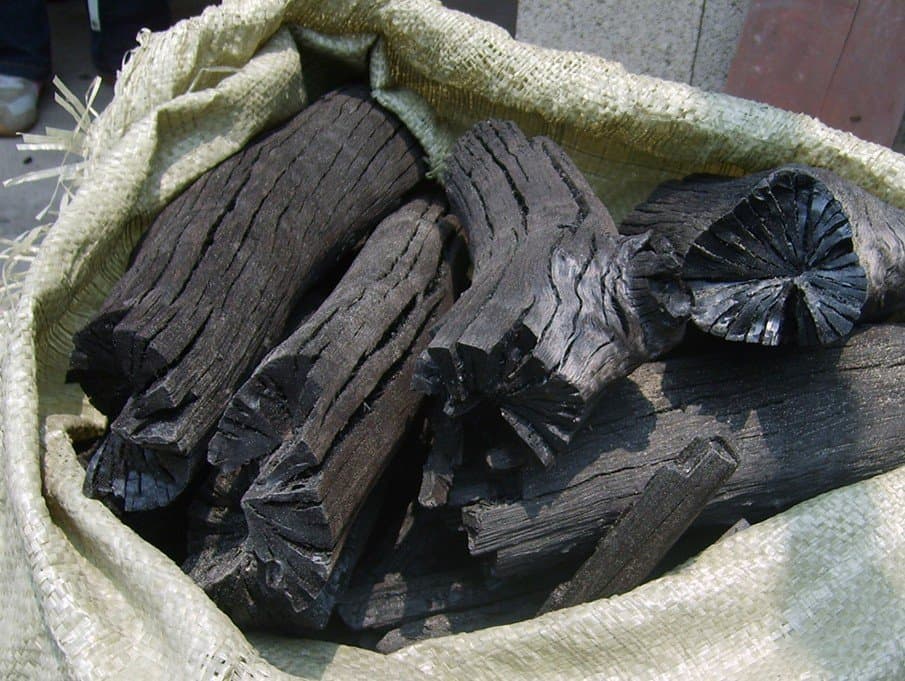In recent years, there has been a growing concern about carbon emissions and their impact on climate change. As individuals, businesses, and governments worldwide strive to reduce their carbon footprints, alternative solutions are being explored. One such solution is the production and use of charcoal. While primarily known for its usage in grilling and cooking, charcoal production can play a significant role in mitigating carbon emissions and promoting environmental sustainability. This article aims to explore the benefits of charcoal production in reducing the carbon footprint.

Carbon Sequestration through Sustainable Forest Management
The production of charcoal relies on the extraction of wood from forests. However, sustainable forest management practices ensure that new trees are planted or naturally regenerated to replace those harvested for charcoal production. This approach creates a cycle of carbon sequestration, where young trees absorb carbon dioxide from the atmosphere as they grow, offsetting emissions produced during charcoal burning. Through responsible forestry practices, the carbon released during combustion is balanced by the carbon absorbed during tree growth. The charcoal production machine can be used to make charcoal.
High Energy Efficiency and Reduced Emissions
Charcoal production involves a process called pyrolysis, where wood is heated in a low-oxygen environment. This process drives off volatile compounds and leaves behind carbon-rich material, which is then crushed into charcoal. Compared to other sources of fuel like coal or petroleum, charcoal possesses high calorific value, meaning it releases more energy when burned. Consequently, using charcoal as an energy source can lead to increased energy efficiency. This increased efficiency results in reduced greenhouse gas emissions per unit of energy produced, contributing to a lower carbon footprint.
Diversification of Energy Sources
By promoting charcoal production, we can diversify our energy sources beyond fossil fuels. Overreliance on fossil fuels has been a significant contributor to rising carbon emissions. Encouraging the use of charcoal as an alternative energy source can help reduce dependency on fossil fuels and subsequently lower carbon emissions. Additionally, diversifying energy sources fosters resilience in local economies, as they become less vulnerable to price fluctuations and supply disruptions associated with finite fossil fuel resources.

Potential for Waste Biomass Utilization
Charcoal production offers an opportunity to utilize waste biomass, such as agricultural residues and wood waste, which would otherwise decompose or be burned inefficiently. Rather than allowing these organic materials to release carbon dioxide into the atmosphere through decomposition or inefficient combustion, converting them into charcoal captures and stores carbon while producing a valuable energy resource by charcoal maker for sale. This process not only reduces carbon emissions but also addresses waste management challenges.
Carbon Offsetting and Sustainable Development
Charcoal production can serve as a viable means of carbon offsetting when coupled with sustainable development strategies. Generating income through responsible charcoal production initiatives can incentivize communities to engage in reforestation efforts and promote sustainable practices. By creating economic opportunities tied to environmental stewardship, charcoal production can contribute to poverty alleviation, while simultaneously reducing carbon emissions and strengthening ecological resilience.
Awareness and Education
Promoting awareness and education about the benefits of charcoal production on reducing carbon footprints is vital for driving positive change. By educating individuals, communities, and stakeholders about the environmental advantages of sustainable charcoal production, we can encourage responsible consumption and support the development of sustainable supply chains. Raising awareness about the impact of charcoal production on carbon footprints can also lead to increased demand for sustainably produced charcoal, motivating producers to adopt environmentally friendly practices.
Carbon Footprint Reduction in Industrial Applications
Charcoal production offers potential benefits beyond household energy use. It can be utilized in various industrial applications to reduce carbon footprints. For instance, charcoal can replace coal in steel production, as it releases fewer greenhouse gas emissions when used as a reducing agent in blast furnaces. Moreover, the high temperature generated by charcoal can be harnessed in manufacturing processes, such as brick making or lime production. By substituting fossil fuels with charcoal, industries can significantly lower their carbon emissions, contributing to overall carbon footprint reduction.
Carbon Sequestration in Charcoal-Based Soil Amendments
Another noteworthy benefit of charcoal production lies in its application as a soil amendment. Biochar, a type of charcoal specifically designed for soil enhancement, has the ability to sequester carbon in the ground for hundreds or even thousands of years. When biochar is added to agricultural soils, it improves soil fertility, water retention, and nutrient availability while promoting carbon capture. The incorporation of biochar into farming practices not only reduces carbon dioxide emissions but also enhances agricultural productivity, contributing to sustainable food production. View this case of biomass to charcoal: https://bestonmachinery.com/charcoal-making-machine-in-indonesia/.
Environmental Co-Benefits
In addition to its direct impact on carbon footprints, charcoal production can result in several co-benefits that contribute to environmental sustainability. Sustainable forest management practices associated with charcoal production can help preserve biodiversity and protect sensitive ecosystems. By encouraging responsible logging and reforestation, we can ensure the conservation of valuable habitats and the maintenance of ecosystem services.
Furthermore, utilizing waste biomass for charcoal production reduces the reliance on landfills, mitigates air pollution from open burning, and prevents the release of harmful greenhouse gases. Properly managing agricultural residues and wood waste through their conversion into charcoal reduces environmental pollution and contributes to a cleaner and healthier environment.
Conclusion
Charcoal production offers a range of benefits in reducing carbon footprints and promoting environmental sustainability. From carbon sequestration through sustainable forestry practices to high energy efficiency and waste biomass utilization, charcoal production presents an opportunity to transition towards a low-carbon future. By raising awareness, educating stakeholders, fostering responsible consumption, and exploring its applications in various sectors, we can maximize the positive impact of charcoal production on mitigating climate change.
However, it is crucial to acknowledge that charcoal production must be carried out responsibly and sustainably to ensure long-term environmental benefits. Proper regulation, certification, and monitoring are necessary to prevent deforestation, promote reforestation, and safeguard ecosystem integrity. Ultimately, by harnessing the potential of charcoal production while addressing associated challenges, we can make significant strides in reducing carbon footprints and building a more sustainable and resilient planet. Try mobile biochar unit at first.